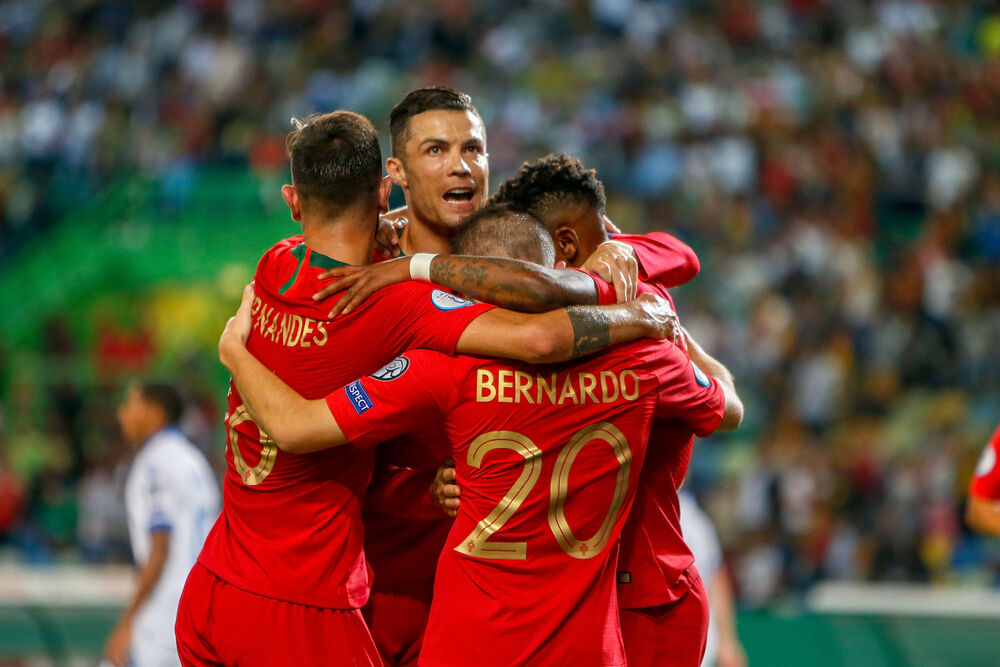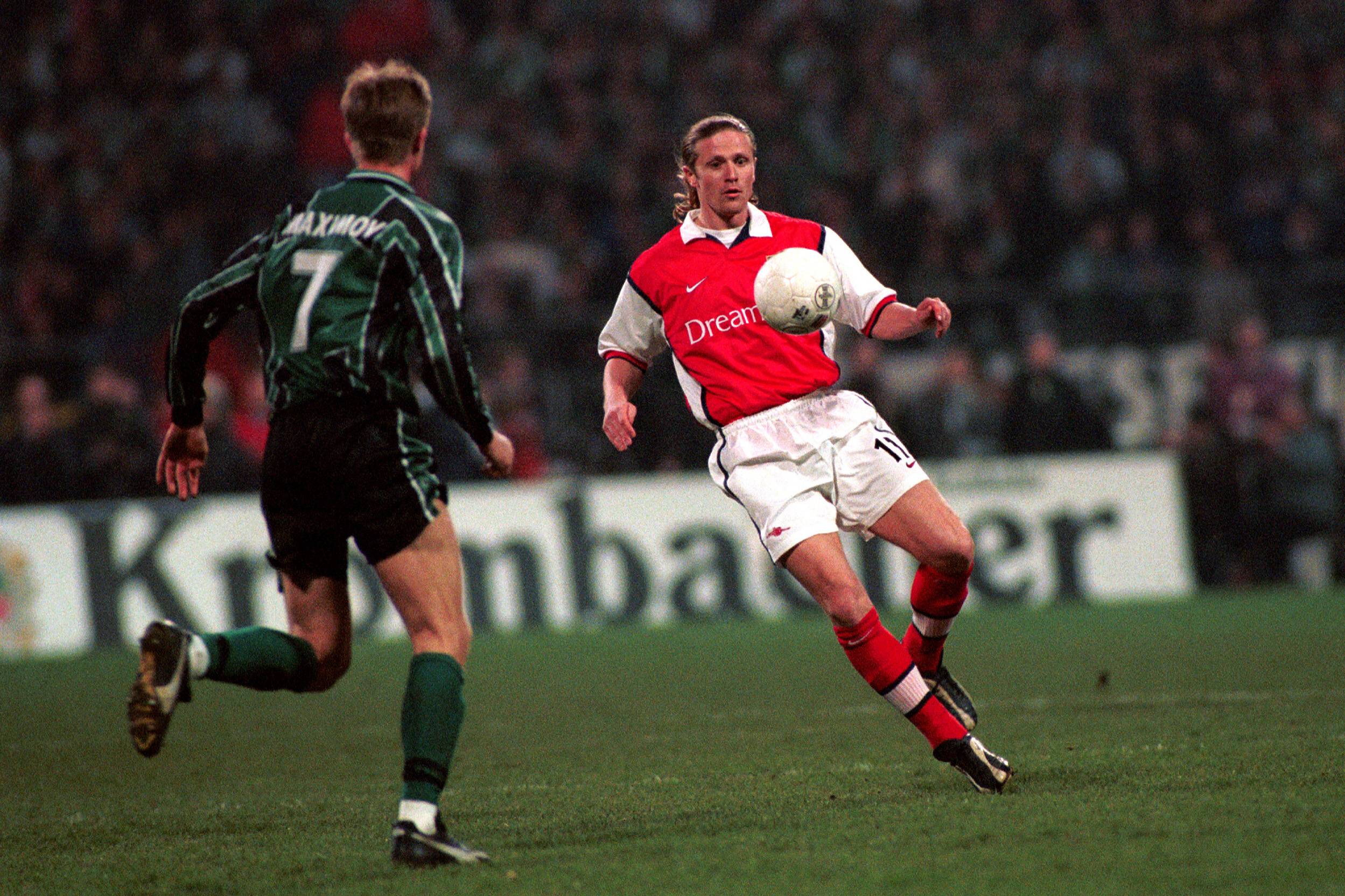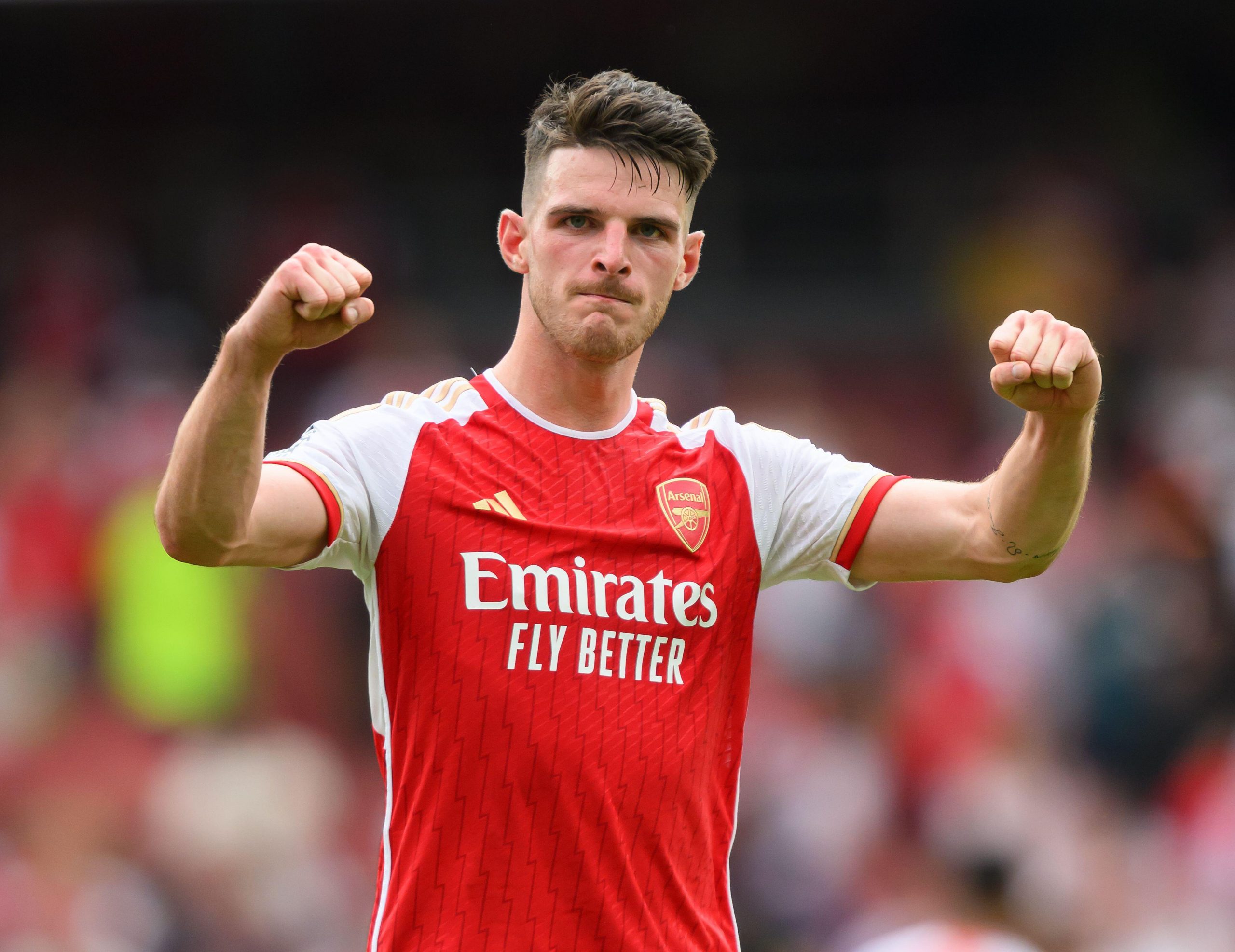With the last round of EURO 2020 group qualification matches having concluded on Tuesday, all the continent’s big guns have booked their place at next summer’s finals. It promises to be an exciting tournament, and a number of teams will have genuine hopes of taking home the title. But how are the contenders shaping up with a little over six months to go until it all kicks off? Let’s take a look.
France
It’s hard to look past the current World Cup holders as the favourites for EURO 2020. The wealth of options available to Didier Deschamps is unrivalled and there’s quality at every position. With the talents of Antoine Griezmann, Kylian Mbappe and Paul Pogba, France have firepower in abundance. Considering they also have N’Golo Kante patrolling the midfield and Raphael Varane marshalling the backline, they’re arguably the most complete team in Europe.
It’s been a straightforward qualifying campaign for Les Bleus, picking up 25 points out of the 30 available, though there have been some disappointing results. Turkey proved to be their toughest opponents, with France losing 2-0 away and drawing 1-1 at home. There are also some concerns surround player form, with Griezmann yet to hit top gear for Barcelona, Kante and Pogba struggling with injuries and Olivier Giroud rooted to the bench at Chelsea.
However, Deschamps will expect most of these issues to iron themselves out between now and the end of the season, so he won’t be losing too much sleep just yet. Even if some do persist, the options available to the manager are plentiful, with the likes of Alexandre Lacazette and Ousmane Dembele not even guaranteed places in the squad. They haven’t quite hit top form in qualifying, but France are still the team to beat and will be full of confidence going into next summer’s tournament.
Belgium
This generation of Belgium players were considered to be underachievers until they finished third in the 2018 World Cup, and Roberto Martinez’s side will hope to top that in the EUROs. They certainly have the talent to go all the way, and with Eden Hazard, Kevin de Bruyne, Dries Mertens and Romelu Lukaku among the ranks, Belgium possess one of the continent’s strongest attacks.
Belgium also possess quality across the park, with Axel Witsel and Youri Tielemans in midfield, Spurs pair Toby Alderwerield and Jan Vertonghen at the back, and Thibaut Courtois in goal. However, the defence doesn’t look quite as sturdy as it did when it was lead by Vincent Kompany two years ago – it’s definitely the front line that will determine how far they go. If the manager can get Hazard and de Bruyne to play at their best, they’ll cause serious problems for any team.
Martinez’s side were drawn in one of the easier qualification groups, but they impressed nonetheless, winning every match and scoring 40 goals in the process – the highest in qualifying. They narrowly lost out to France in the last World Cup, but the Red Devils will be confident of taking the trophy home this time around.
Portugal
The current EURO champions won the last edition without ever really blowing anyone away, and the good news for Portuguese fans is that this squad, on paper at least, looks stronger than the one that claimed glory four years ago.
That team relied on veterans Nani and Ricardo Quaresma to support Cristiano Ronaldo in attack. This time around, Portugal have Bernardo Silva, who has emerged as one of the world’s top attacking midfielders, as well as one of football’s most exciting young talents in Joao Felix. Bruno Fernandes also adds an attacking threat to what was a fairly functional central midfield.
However, as has been the case for the last few years, Portugal look weak at the back. Benfica’s Ruben Dias and Ferro are good prospects, but the fact that 36-year-old Pepe and 35-year-old Jose Fonte are still starting isn’t exactly ideal. In Portugal’s defence, Fernando Santos has developed a well-drilled, organised side that makes up for their lack of individual quality at the back, but it’s still a backline which looks like it could struggle against top forwards.
Portugal haven’t had the best qualification campaign, either. It started with two draws against Ukraine and Serbia, and Santos’ side also lost away to Ukraine in October, meaning they finished second in their group and won’t be a top-six seed at the EUROs. Still, the Nations League win in the summer proves that they can turn up on the big occasion, and the Portuguese will have faith in their ability to defend their crown.
Spain
Spain are no longer the force they once were, but it’s still a country that produces plenty of top-level talent. This is most evident in the midfield, where the team has an embarrassment of riches including Sergio Busquets, Isco, Thiago, Saul, Koke, Fabian Ruiz and Dani Parejo. You can make a quality midfield with any combination of those players, but it’s not quite the same story further up the pitch.
The big worry for Spanish fans is that the team doesn’t have a settled forward line. Their last five games have seen different combinations of Rodrigo Moreno, Pablo Sarabia, Mikel Oyarzabal, Gerard Moreno, Suso and Alvaro Morata start in attack. While there’s quality to choose from, Spain are bereft of a world-class attacker in the mould of David Villa or Fernando Torres from their glory years. They are also weaker at the back since Gerard Pique’s retirement, and have dropped points against both Sweden and Norway in qualifying.
Another issue for Spain is the recent upheaval in management. Luis Enrique stood down in June due to personal circumstances, with his number two and close friend Roberto Moreno given a contract till the summer. However, it was revealed on Tuesday that Enrique had returned as manager.
It was initially thought that Moreno would return to his role as assistant, but the way in which the situation was handled resulted in him walking away from the national side. There’s no doubting Enrique’s pedigree, but the supposed animosity surrounding the nature of his initial departure is far from ideal, especially with the tournament just over six months away.
Germany
Similar to Spain, Germany no longer boasts the world-class talents of yesteryear, but they’re still good enough to trouble even the best teams. The current side is a different prospect to the dominant, uber-efficient side of years gone by, with much of the old guard pushed out to make way for exciting young talents. Thomas Muller, Mesut Ozil and Jerome Boateng have been phased out, replaced by the likes of Timo Werner, Julian Brandt, Serge Gnabry and Niklas Sule.
The attacking talent should carry the side to decent run in the tournament. No defence will look forward to the prospect of facing the pace and skill of Gnabry and Leroy Sane, while Werner is one of Europe’s form strikers with 15 goals from 17 games for Leipzig this season. However, the upcoming EUROs will probably come too soon for this Germany side. The likes of Toni Kroos and Manuel Neuer are in the twilights of their respective careers, while the defence is a far cry from the formidable partnership of Boateng and Mats Hummels of years gone by.
The Germans endured a torrid end to 2018, finishing bottom of their Nations League group having picked up just two points from four games against France and the Netherlands. They navigated qualification with relative ease, but the six goals conceded across the two games against the Netherlands, including a 4-2 home defeat, show that this is a porous defence. This is only further compounded by Niklas Sule’s long-term cruciate ligament injury.
Italy
Italy have had a fairly disastrous few years, culminating in their 2018 World Cup play-off defeat to Sweden. However, the team has been much improved under former Manchester City boss Roberto Mancini. While still some way from the world-class sides produced so often in the past, Italy are definitely on the up.
It’s a fairly well-rounded team, with solid performers across the park complemented by a few standout star players. Leonardo Bonucci is the main man in defence, and Mancini will hope captain Giorgio Chillieni recovers from long-term injury in time to partner him. The midfield features the young talents of Nicolo Barella, Lorenzo Pellegrini and Stefano Sensi, as well as established names Jorginho and Marco Veratti.
There’s also plenty of firepower in the wide areas, with Federico Bernardeschi, Federico Chiesa and Lorenzo Insigne all dangerous players. The real question is the number 9 position, as it’s a role that both Ciro Immobile and Andrea Belotti have failed to truly make their own. However, both forwards have started this season well, so there’s reason for optimism.
Probably the most impressive team in qualifying, Italy won all ten of their games, the highlight being the 9-1 win over Armenia. This is a confident, attacking side that is probably Europe’s form team at the moment. They don’t have world class talents like France and Belgium do, but they’re a team that will be full of confidence after a resounding success in their qualifying group.
England
Two years on from England’s thrilling journey to the World Cup semi-final, and it’s difficult to say whether the national side have really improved or not. Southgate has switched from a back three to four, but the defence still looks susceptible to errors and is probably the weak spot. The midfield, as it was two years ago, is solid but wholly unspectacular.
England front line, on the other hand, is amongst the most dangerous in Europe. Harry Kane is as reliable as ever, while Raheem Sterling has developed into one of the world’s best attackers, and more importantly, is now bringing his club form to the international stage. Jadon Sancho and Marcus Rashford are battling for the third spot, and both are talents capable of hurting any opponent.
England have the ability to reach the latter stages, but if they are to come up against the likes of Belgium and France, it’s difficult to see them emerging victorious. Plus, despite the positivity Southgate has generated since taken over, the Nations League finals proved that this is still a team that struggles to cope with the big occasion.
It was a straightforward qualification campaign, though a disappointing loss to Czech Republic and some unconvincing defensive displays highlighted the team’s weaknesses. The fact that Gareth Southgate also seems someway from knowing his best XI is also a concern.
Netherlands
Like Italy, the Netherlands are another traditional powerhouse that have had a pretty rough time of it over the last few seasons, with failure to qualify for the 2018 World Cup being a particularly low point. Ronald Koeman has made big improvements to the side since then, but whether they have enough quality to really trouble the likes of France and Belgium is another question.
The defence is one of the best around, with Liverpool’s Virgil van Dijk partnering Matthjis de Ligt. Frenkie de Jong and Georginio Wijnaldum are at the heart of the midfield, but the main weakness of this Dutch side lies in their attack. Memphis Depay plays as a striker for the national team and has impressed in the role over the last couple of years, supported by the likes of Quincey Promes and Ryan Babel. Koeman’s managed to get the most out of his options so far, but it isn’t a frontline that will strike fear into the continent’s best defences.
Of course, a team shouldn’t be judged individually, and impressive recent results such as the wins over Germany and England show that this Netherlands side is greater than the sum of their parts. However, it would be a surprise to see the Dutch mount a serious challenge, though the EUROs should provide valuable experience for the team’s many talented youngsters.
Croatia
They may not be traditional heavyweights, but the 2018 World Cup runners up deserve to be mentioned. The Croatia side is largely unchanged from the one that stunned the world two years ago, bar Mario Mandzukic’s retirement from international football, but the main concern is that many of their top performers are now two years older.
Luka Modric, Ivan Rakitic and Ivan Perisic are all now in their thirties and nearing the end of their careers. It’s fair to say that none of them are the forces they were in 2018, with Rakitic frozen out at Barcelona and Modric’s form and fitness having dropped off since his stunning 2018. Perisic has also struggled for minutes since completing his loan move to Bayern Munich.
Croatia topped their qualifying group, but they did drop seven points along the way. The run included a 2-1 away defeat to Hungary as well as draws against Azerbaijan and Wales, which shows this side isn’t as strong as 2018’s squad. They will be competitive, but it seems unlikely that Croatia will really trouble the top teams.






